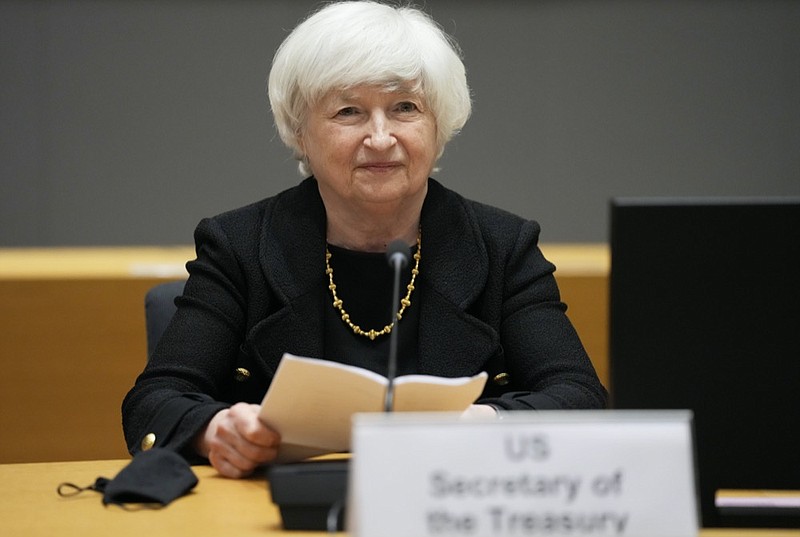Every couple of years, the United States Congress engages an inane ritual that threatens to needlessly wreak havoc on the economy and further dent America's standing as a world leader. Like clockwork, it's that time again: some members are threatening to prevent the federal government from paying the bills that Congress has run up on on the taxpayer credit card.
Unless the debt ceiling is raised by August 2, the United States would eventually be unable to meet all of its obligations and could be forced to default on principal and interest payments to holders of Treasury bonds. Naturally, the expectation is that a 12th (or 13th) hour deal will be struck to prevent catastrophe as has always happened in the past once the players have had their moment in the spotlight. But last week, Senate Minority Leader Mitch McConnell announced that his caucus will oppose increasing the debt limit as a tactic to extract concessions from Democrats. To understand just how cynical this traditional Kabuki theater is, read on.
Congress passes and the President signs spending bills that authorize every nickel that the US Government spends each year. Except for the period from 1998 to 2001, Congress has spent more than it takes in every year since 1970. The shortfall is known as the budget deficit, and each year's deficit adds to the total national debt. This outstanding debt is financed by the U.S. Treasury by selling U.S. government bonds to other countries, banks, institutions, and individuals. These bonds are in demand for their perceived safety and security. Despite its political dysfunction and periodic bouts of temporary insanity, the government has always made good on its pledges.
Which brings us to the debt ceiling. Prior to 1917, Congress had to approve every individual bond issue. Financing World War I required significant borrowing, so Congress authorized a total borrowing limit up to which the Treasury could issue bonds as needed to pay the bills Congress incurred. As deficits grew and the national debt became a permanent fixture, the statutory limit frequently needed to be raised. For most of the past century, this was an automatic process, and has occurred over 100 times. Then in the 1990s. some politicians recognized they could weaponize this archaic but necessary procedural process and hold the government hostage, posturing before their constituents to evoke a faux aura of "fiscal responsibility".
It is essential to remember that Congress has already spent the money. Now they have the procedural duty to raise the debt ceiling and pay the tab. Hence the entire exercise of Pharisaical opposition to raising the debt limit is disingenuous.
But just because it is dumb does not mean it has no consequences. The national debt has exploded, increasing nearly 400% during the past three administrations (Bush, Obama, and Trump). The $23 trillion in total debt held by the public now exceeds the entire annual output of the U.S. economy for the first time since the end of WWII. No other country could survive such profligacy, but America has benefited from the special role of the Dollar as the global standard of exchange and the certainty that its debts will be repaid.
Each time Congress engages in its debt ceiling sophistry, the rest of the world gets a little more nervous. The extraordinarily low interest rates of the past few years have masked the danger of such enormous debt. If serious doubt emerges as to whether the U.S. government might renege on its commitments, it could trigger a stampede out of Treasury bonds and cause borrowing costs to soar. The prospect of interest rates returning even to normal historical levels has profound implications for the economy given this huge debt. A loss of confidence in Uncle Sam by foreign creditors would be disastrous. Treasury Secretary Janet Yellen, a former Fed Chair, warned of "irreparable harm" if lawmakers goof this up.
To paraphrase Winston Churchill, Congress will probably do the right thing once it has tried everything else, and so the debt ceiling will ultimately be adjusted and the Apocalypse will be delayed. But each time they reprise this Vaudeville review, our legislators erode confidence in America and swerve closer to the edge of the cliff.
Christopher A. Hopkins is a chartered financial analyst (CFA) in Chattanooga.
